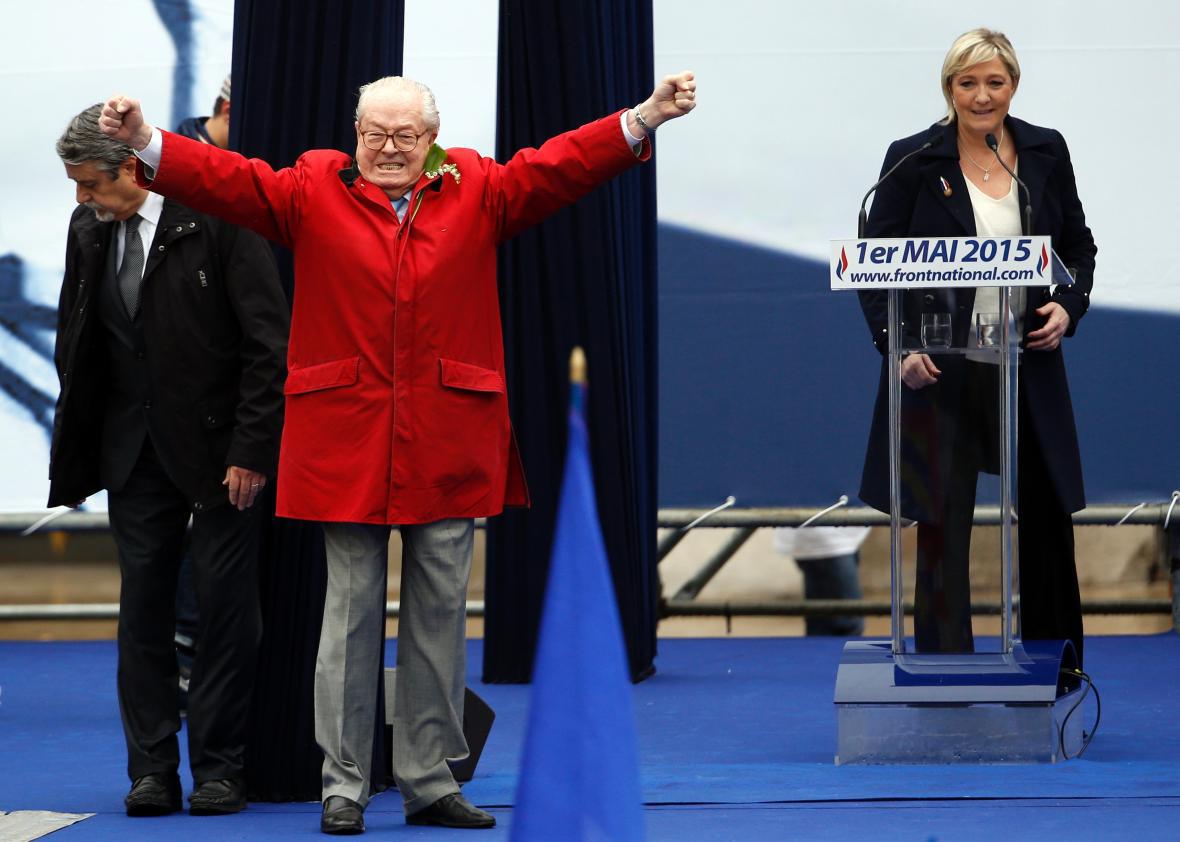French National Front leader and leading presidential candidate Marine Le Pen has been back in the news in recent days for her proposal to ban the wearing of all “conspicuous” religious clothing in public in order to fight “political Islam.” This would include not just Islamic hijabs, but also yarmulkes, in the name of equality. Crosses are apparently fine, as Le Pen helpfully noted that “the Catholic religion doesn’t have conspicuous symbols.”
Polling suggests that Le Pen is likely to get the most votes (about 26 percent) in the presidential election next April. While she’ll almost certainly be crushed in the second round, most likely by whichever candidate wins the center-right Republican party’s first ever open primary, this is a stunning shift to the mainstream of French politics for the National Front, a party once thought of as a fringe movement of xenophobes and neo-fascists.
Sound familiar? Le Pen has frequently been compared to Donald Trump, and she has embraced the comparison. Both have benefited from popular anger at the political establishment and hostility to immigration and economic globalization. As the U.S. election looms, and Trump seems less and less likely to win it, many of us are wondering if and in what form Trumpism will become a permanent feature of American politics. So it’s worth considering how the Front was able to sustain itself after Marine’s father Jean-Marie Le Pen shocked the world by finishing second in the 2002 election.
First, it’s important to note the ways in which Trump’s “movement,” if we can call it that, is in a much stronger position than France’s far right has ever been. In the 2002 election, the Front’s debut as a viable national party, Le Pen won less than 17 percent of the vote in the first round, and only picked up about one percentage point in the runoff. That’s good enough for second place in a multiparty system like France’s, but in an American context, it’s closer to Gary Johnson’s numbers than the roughly 40 percent who would vote for Trump if the election were held today.
Also, in France, the political establishment banded together across party lines to keep the Front out of power. That’s why Le Pen’s party didn’t pick up a single regional presidency after regional elections last year, despite getting more votes than any other party.* There’s certainly been nothing in France like the Republican Party leadership’s embrace of Trump, however wary it may be. Both Le Pens have been fighting to pull the mainstream conservatism in their direction. Trump is in a position to simply take it over.
If there is a lesson about Trump from the French experience, it’s that Jean-Marie Le Pen’s movement gained a lot more mainstream acceptance once he was no longer associated with it. With his affinity for France’s wartime fascist leaders, flirtations with Holocaust denial, and open bigotry, the elder Le Pen was appealing to a narrow segment of the voting public, but was toxic to the majority. Marine, who actually suspended her father from the party, toned down the bigotry—particularly the anti-Semitism, kippah bans notwithstanding—and the fascist rhetoric, refining the party’s core message on the dangers of immigration and the EU in a way that was palatable to a much wider cross-section of voters. That is how Le Penism has continued to thrive.
If only Trump had a smarter, savvier, more appealing daughter who was less prone to conspiracy theories, personal insults, and outright racism but supported the core message of his campaign.
*Correction, Oct. 19, 2016: This post previously stated that the National Front didn’t win a single seat in 2015 regional elections. It didn’t win any regional presidencies but did pick up a number of seats.
